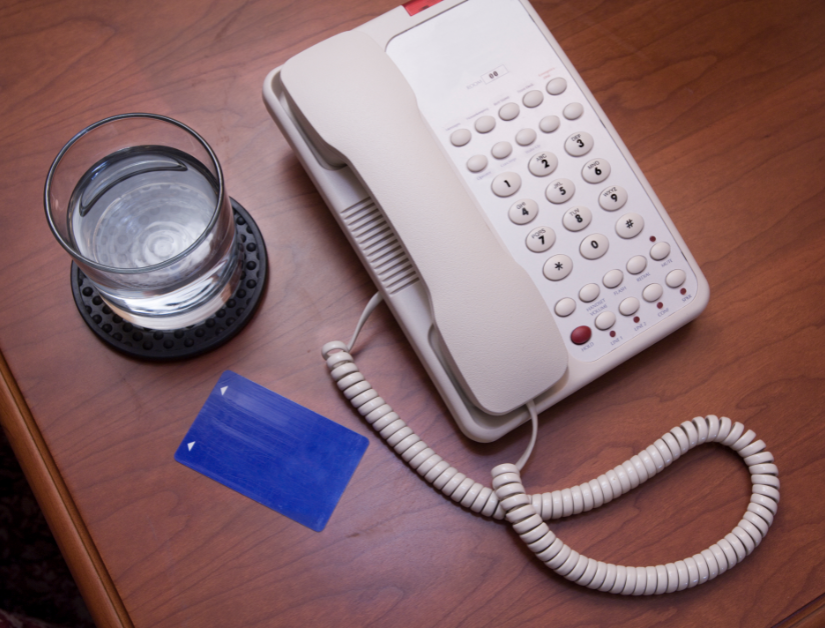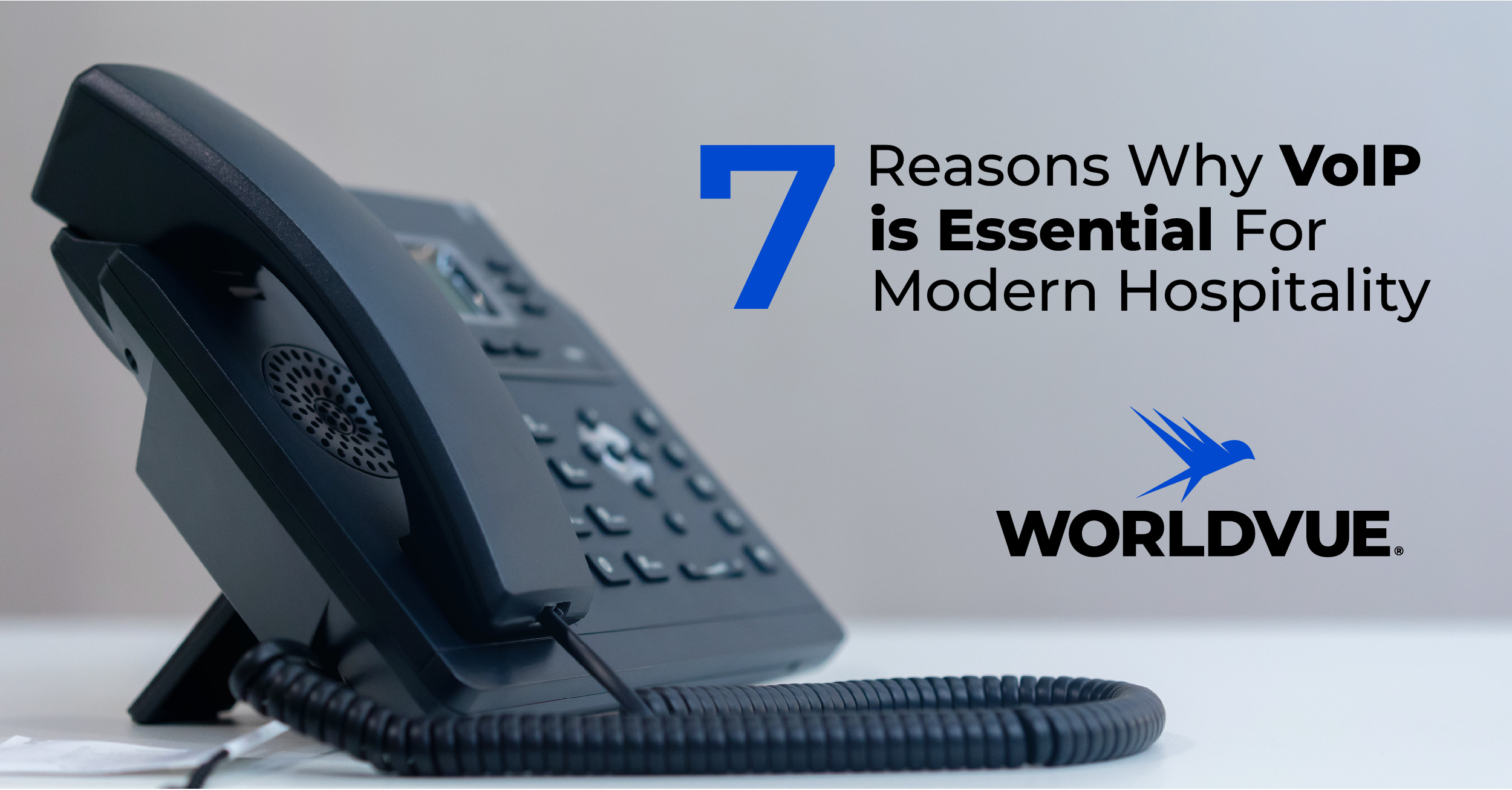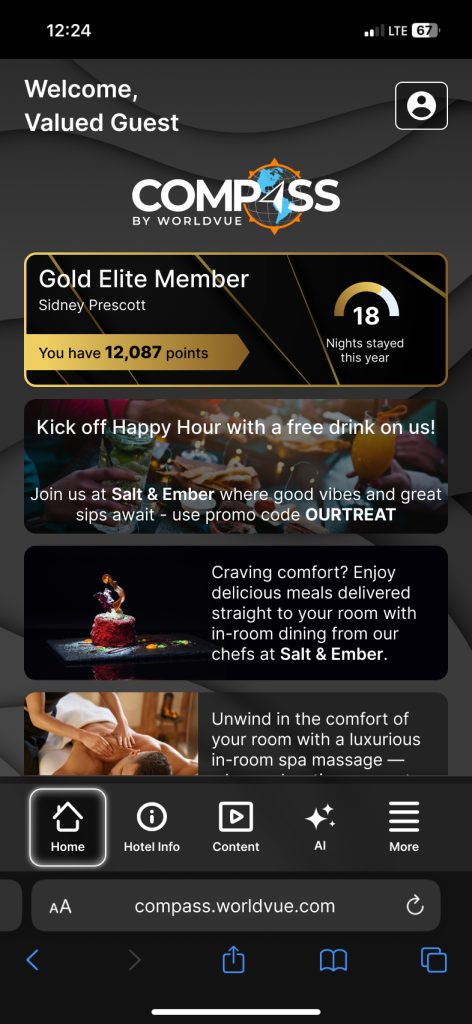Table of Contents
For hospitality properties, having a well-functioning telephone solution is crucial. However, while Plain Old Telephone Service (POTS) may have been great years ago, it’s a technology designed for another age. Newer phone technologies such as VoIP can be much less expensive – up to 50% less per line – and much more flexible to meet your property’s needs.
Do Telephones Matter Anymore?
Yes! Hotels use telephone systems to facilitate communication between guests and various departments, such as housekeeping, room service, and the front desk. Prompt and courteous assistance through phone calls greatly influences guest satisfaction.
Telephone information technology has also helped hospitality businesses better manage inventory, bookings, reservations, and customer data. Without information technology, managing the day-to-day operations of hotels, restaurants, and other hospitality-related businesses would be impossible.
Phone conversations also allow for small talk and follow-ups that email chains don’t, helping build rapport and adding a personal touch. This can make the difference between misunderstanding and reassurance, helping the customer make a connection with the person and the company they represent.
7 Ways VoIP Can Help
VoIP makes it easier for your hotel to achieve these goals, and it has definite advantages over POTS, including those described below.
1. Cost Savings
As noted above, VoIP with a cloud or on-premise PBX typically costs much less than POTS systems in terms of setup and ongoing maintenance – up to 50% less per line. This is mainly because VoIP requires less equipment and uses existing Internet lines. Maintenance also costs less for newer equipment and cabling than for older copper wiring and analog devices.
2. Scalability
VoIP makes it easier for hoteliers to add or remove lines and extensions as needed. This ensures that the phone system can grow along with your business without requiring significant changes to infrastructure.
3. Improved Call Quality
While early VoIP solutions had a reputation for poor call quality, modern VoIP technology has improved to offer high-quality calls that surpass POTS. The continual development of high-definition codecs allows VoIP solutions to provide ongoing performance upgrades, which isn’t possible with traditional phone systems. With a reliable Internet connection, guests and staff can enjoy crystal-clear calls without disruption.
4. Enhanced Features
Modern VoIP phone systems typically offer a wide range of features to enhance communications and simplify management. These include voicemail-to-email transcription, auto attendants, conference bridging, and custom hold messages.
5. Remote Management
VoIP and cloud/on-premise PBX solutions allow for remote management. This means that hotel staff can monitor and configure a hotel’s phone solution from anywhere with an Internet connection. It also means staff can easily apply standard configurations to phone systems at all properties under one ownership or management company.
6. Integration Capabilities
Modern phone systems can integrate seamlessly with other technologies like PMS and CRM software. For example, if a frequent customer calls the hotel, staff can easily pull up details for that customer to provide a more personalized experience. This can improve efficiency and enable better guest service.
7. Future-Proofing
Because they rely on older equipment and cabling, POTS systems are fast becoming obsolete. And because VoIP solutions can be upgraded in ways that POTS systems can’t, new features can be added to make these modern solutions more future-proof, enabling them to grow with your business.

What Do Hotels Need to Upgrade to VoIP?
To upgrade from POTS to a VoIP solution, hotels may need to improve their existing technology, including the items described below. This will enable your staff and guests to enjoy the benefits of modern voice technology while improving efficiency and enhancing the guest experience.
VoIP Phones
You will need to replace your existing POTS phones with VoIP-compatible phones that can communicate using your hotel’s network instead of traditional phone lines.
Depending on your other existing equipment, you may want to use VoIP adapters (for temporary use of analog phones) and softphones (to add VoIP calling functionality to a computer or smartphone).
PBX Server and/or Software
To manage calls, voicemail, and other features, you will need to install a cloud or on-premise PBX server. This can be a physical device or a software-based solution installed on a dedicated machine. A cloud-based solution can be beneficial, as it doesn’t require dedicated equipment at your property.
Network Infrastructure
You’ll need to ensure that your network infrastructure can handle VoIP traffic without degrading quality. This includes upgrading to modern network equipment (such as switches and routers) designed to handle increased traffic with reliable performance.
It should also include cabling such as fiber or Ethernet that meets CAT6 or higher standards, as well as a reliable high-speed Internet connection. You’ll want to specify and configure Quality of Service (QoS) standards to prioritize voice traffic and ensure call quality.
You may also want to segment your network to separate voice traffic from your guest and administrative networks. This will reduce the risk of network congestion, thus improving call quality.
Power Backup
Traditional POTS systems don’t require power to function. That’s not the case for VoIP solutions, so you’ll want to have some sort of power backup, like backup generators and/or uninterruptible power supplies (UPS).
Gateway
If you want your property to maintain connectivity to traditional POTS systems, such as for emergency purposes or to maintain compatibility with legacy equipment while upgrading, you may need a VoIP gateway. This kind of gateway can convert VoIP calls to analog signals for transmission over older POTS lines (and vice versa).
Security
As with any hotel technology solution you install, you’ll want to implement security measures to protect the system from cyber threats. These should include firewalls and intrusion detection systems. You’ll also want to keep these security measures updated to protect your systems (and your guests’ data) from attack.
Integration
If your hotel uses other systems, such as PMS and CRM, you’ll want to ensure that your new VoIP solution can integrate seamlessly with them. This will enable features like advanced caller ID, guest messaging, and call logging, as well as more personalized service.
Training
Hotels will also need to ensure training for their staff and ongoing support for both staff and guests. However, despite the additional features offered by VoIP phone solutions, they’re often actually easier to configure and use than older POTS phone systems.
With any great relationship, there is great communication. That’s why WorldVue will design and build a robust, cost-effective telephone solution to give your staff and guests the 5-star treatment they deserve. WorldVue offers customizable solutions to meet your hotel’s unique needs, whether for retrofits or new installations. We have a proven record of customer satisfaction, reliability, and cost-effectiveness. Contact us today to learn more about our solutions and schedule a consultation.



